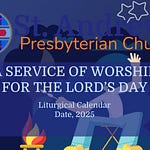Full Service
Scripture:
2 Kings 22:3-20; 2 Timothy 3:10-4:8
Note: This week we will have a remembrance of baptism instead of celebration of the Lord’s Supper. Communion will be on July 20th this month.
Sermon Notes
This week we start the Summer Sermon Series, ‘How to Read the Bible’ based on the Bible Project series by the same name.
Our Bible is a library of writings that were written, collected, and edited over a thousand years. The Hebrew Scriptures (a.k.a Old Testament) bears witness to the interaction between the ancient nations of Israel and Judah, and their God. The Christian scriptures (a.k.a New Testament) bears witness to the community of those who believed that Jesus of Nazareth was the Messiah promised in the Hebrew scriptures and the savior for all people.
I chose the two scriptures for this week to inform us about the internal understanding of the scriptures. The first is an account of the court of King Josiah of Judah who ‘discovers’ the Law (Torah) in the Jerusalem Temple. This is likely in reference to the first written version of the Torah that we would recognize as a part of the Hebrew scriptures.
The second is a reference to the ‘scriptures’ and their use within the Christian scriptures. The author is most likely referring to the Hebrew scriptures here, but also references the gospel reference which is being developed.
If you would like to explore this topic more (before or after the sermon), please see the following notes:
Intro to the Bible 1- “What is the Bible?”
Main Page: https://bibleproject.com/explore/video/what-is-bible/
YouTube Link:
Discussion Questions (Adults):
Why did God choose to reveal God’s self through the history, struggles, and meditations of one particular people situated in one particular corner of the earth?
How do the diverse genres of poetry, letters, law texts, and wisdom writings complement the narrative texts and thus contribute to our overall understanding of the overarching story? Why the diversity of genres?
What is the value in God revealing God’s self through texts spread out over 1000 years and written by different authors?
What are the advantages or pitfalls to different Christian traditions including different lists of writings into the Bible?
Does this story continue in Christian believers today? If so, how? If not, what is fundamentally different between the story of the Bible and the story of the Church as lived out today?
Discussion Questions (Youth):
Why did God choose to reveal God’s self through the history, struggles, and meditations of one particular people?
How do the various types of writings in the Bible contribute to an understanding of the overall story of the Bible?
What is the value of God revealing God’s self over 1000 years and through multiple different authors?
Does this story continue in Christian believers today? If so, how? If not, what is fundamentally different between the story of the Bible and the story of the Church as lived out today?
Discussion Questions (Elementary Youth):
Why do you think God chose to show us who God is through the stories and writings of one family of people?
How many kinds of writing or story telling can you think of? Why did God use different kinds of writings in the Bible?
Why do you think that God used many different people to write over a long time?
Does God’s story continue today?
Extra Study/Credit
Bible Project Podcast: https://bibleproject.com/podcast/series/how-to-read-the-bible-series/
Episode 1: The Bible as Literary Art
Episode 2: What’s In Your Bible
Notes from AJ:
The Bible project is a definitively protestant and Christian organization, and as such, has a specific perspective that they see this from. Their mission is to “help people experience the Bible as a unified story that leads to Jesus.” This is also our perspective. However, that being said, a few things to be aware of:
Old Testament/New Testament: There has been some pushback in academic circles over using the phrase ‘Old Testament’. Specifically hearing from both our Jewish siblings and those in the Church that the title implies that these writings are outdated, and have been replaced by a newer and better Testament. Even Jesus said that he did not come to replace the Law, but to fill it in more (Matthew 5:17). “Hebrew Scriptures” and “Christian Scriptures” may be more appropriate. We also should acknowledge that the ordering of the books in our Hebrew Scriptures differs in several notable places from its historical order in the Jewish Tanakh (as well as continued order for our Jewish siblings).
Old Testament ‘Just Ends’: In the video there is a statement that the Hebrew Scriptures are an “expertly crafted literary work that just end”s. This makes sense from their perspective, but is a bit problematic from an interfaith perspective. Is there an unfulfilled hope for a future Messiah (anointed one) and son of David (future King)? Yes, but our Jewish siblings would not say that their Scriptures ‘just end’ anymore than we would. Arguably, the Christian scriptures also ‘just end’ with the early church expecting the imminent return of Christ.












Share this post